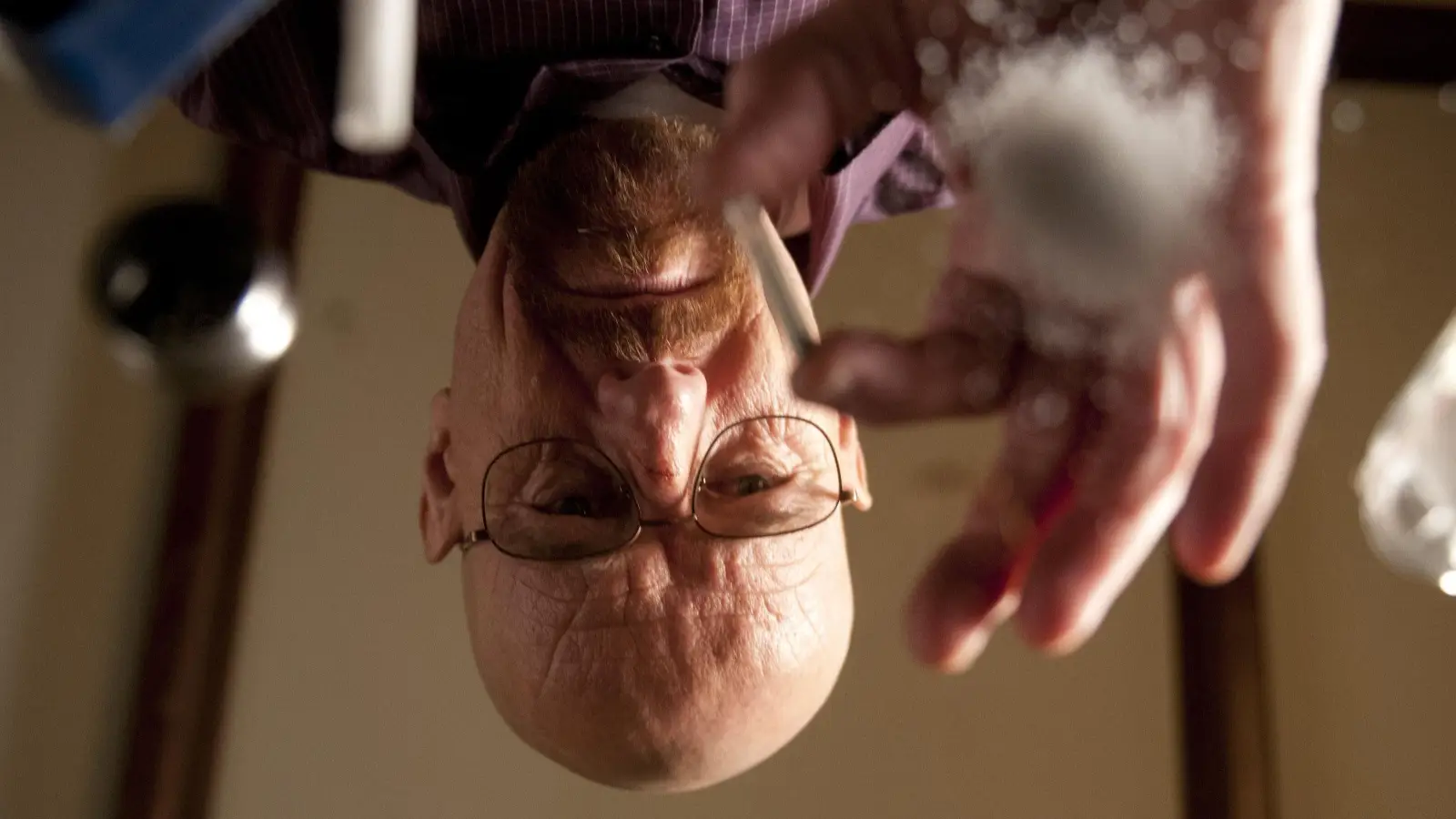
Bryan Cranston thinks that everyone has the wrong idea about Walter White and the part he plays in Breaking Bad. It’s been 12 years since Bryan Cranston last donned the cloak of Walter White for the beloved neo-Western crime drama, and interest in the show feels almost as high now as it did then.
Shakespearean almost in its story, completely unique in its conceit, and brilliantly and sharply made at every turn, there is so much you can dig into with a show like Breaking Bad. Every character is round and worth deliberating. Even Bryan Cranston himself is still considering the real motivations of Walter White.
Bryan Cranston Doesn’t Believe Walter White Was Always Evil
In an interview with Variety in June 2023, Bryan Cranston explained his thoughts about the character who altered the trajectory of his career. Cranston was asked, “As Walter White says, ‘Oh, so you’re always this way?’ If you asked Walter, in his heart of hearts, ‘Were you always the way you were?'”
Cranston answered,
“No. And I believe that to be true. Had he not been given the cancer diagnosis, he wouldn’t have gone into this illegal business. Whereas Saul Goodman was kind of born this way. I think it highlighted, for fans, the difference between the two main characters of their independent shows.”
The interviewer is referring to a flashback scene in the Better Call Saul finale, which features a cameo from Cranston as Walt. Saul (Bob Odenkirk) mentions something about his past, prompting the ever snarky Walt to comment that Saul must have always been the way he is, which is true to an extent.
Cranston believes that Walt has not always been this way, creating an interesting dichotomy between Vince Gilligan’s two lead characters. To Cranston, Walt is someone whose descent begins with a tragic event he can’t control: his cancer diagnosis. While it’s not a justification for Walt’s actions, it’s a suggestion that what happened with Walt could happen to anyone desperate enough.
Why A Lot Of Fans Think Walter White Was Always Like That
Some fans have a different interpretation of Walter White, that he has always been a dangerous and villainous man. One viewpoint of Walt is that he’s always been selfish, cruel, and calculating, but he’s repressed that side of himself due to the circumstances of his life: having a family, a job, health, etc.
Once his health, and subsequently, everything else in his life, is threatened to be pulled away, Walt is free to throw off the good-natured disguise he’s been wearing for so long and embrace the darker sides of his personality. After all, he does take to the criminal lifestyle rather quickly.
There are a few hints that Walter could have always had a criminal mastermind hiding somewhere inside him, just waiting for the opportunity to come out. His admission to Skyler (Anna Gunn) that he made and dealt drugs because he liked it and was good at it could be a signal that this was always who he was.
Heisenberg’s Journey In Breaking Bad Leaves Room For Interpretation
One of the reasons Vince Gilligan’s show is held in such high esteem and is still celebrated as a major feat of television years later is because of how he constructs his characters. Breaking Bad doesn’t have any major characters that you could describe as one-dimensional, least of all Walter White.
Walt is an enigma, even to himself. If he weren’t, he would not constantly be making so many decisions that end up having major repercussions. Is Walter a criminal mastermind one step ahead of everyone? Is he like Jack Sparrow in Pirates of the Caribbean, making everything up as he goes along?
More importantly, what does Walter White feel? Is he deeply frustrated with his inability to protect himself or his family? Is he a bitter scientist nursing an original wound from his ousting at Gray Matter? Is he every middle-class, middle-aged man, bored with life, who finally finds true excitement and worth? The interpretation is ultimately up to you.
Walter White Did Change During Breaking Bad
Regardless of whether you agree with Bryan Cranston’s interpretation or not, Walter White changed over the course of five seasons of Breaking Bad. Even if he always had a darkness inside him, Walt definitely got darker over the course of the show as he became one of the most dangerous criminals in North America.
The early-season version of Walt did kill Krazy-8 himself, but it affected him. He was beside himself with guilt and only brought himself to kill the dealer when he had no other option. By the end of Breaking Bad, he’s sentencing his former friend Jesse Pinkman (Aaron Paul) to death by revealing him to the Neo-Nazis.



